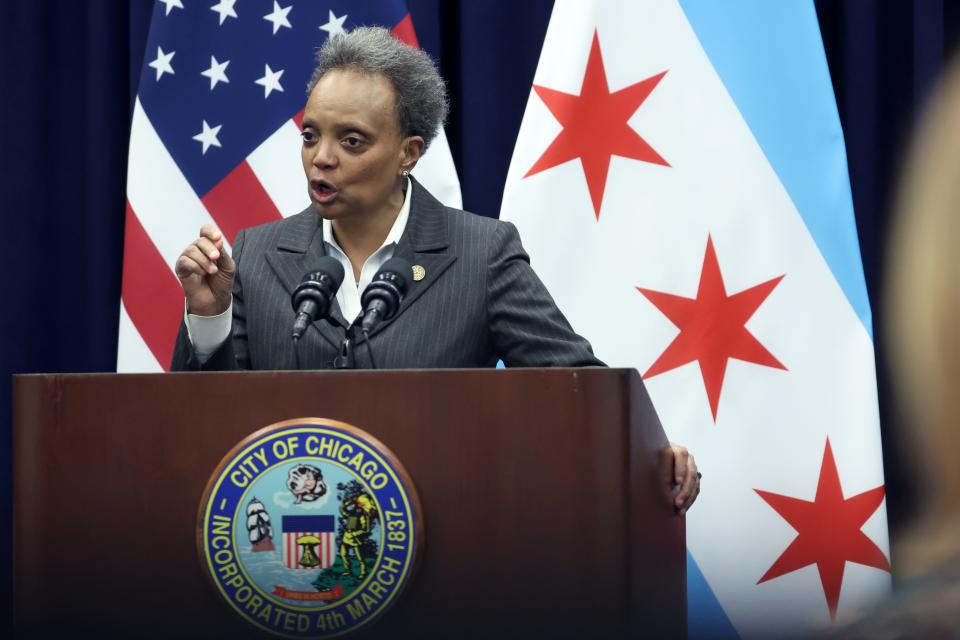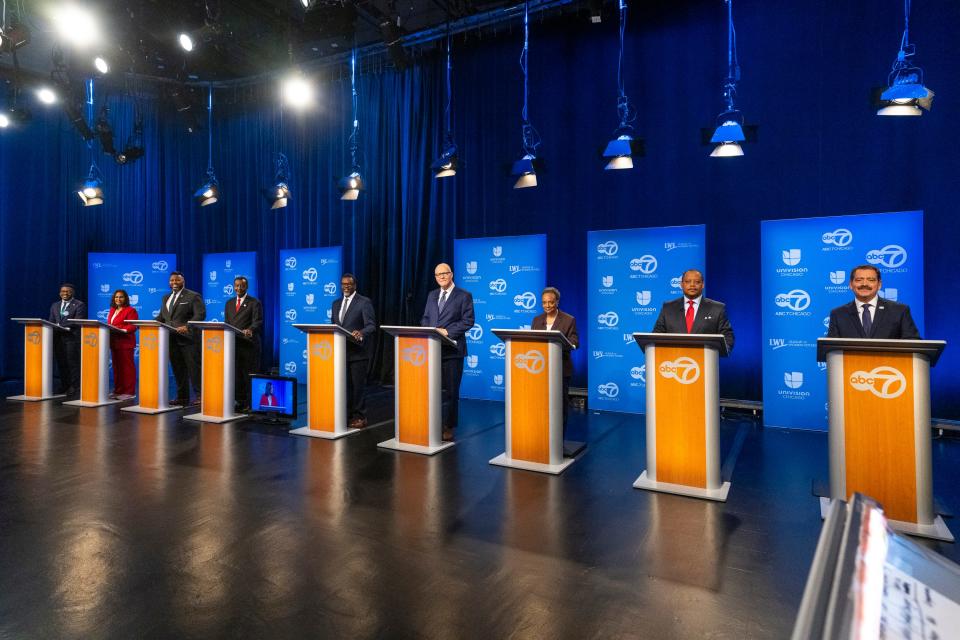Chicago voters end mayor Lori Lightfoot's bid for reelection as challengers Vallas and Johnson head to April runoff
- Oops!Something went wrong.Please try again later.
- Oops!Something went wrong.Please try again later.
CHICAGO – Lori Lightfoot lost her bid for a second term as Chicago mayor Tuesday in the nation's third-largest city after facing widespread criticism over her divisive leadership and the city's increase in crime.
Paul Vallas and Brandon Johnson will advance to the April 4 runoff to be the next mayor of Chicago after none of the nine candidates won a majority in the officially nonpartisan election.
Lightfoot, who made history in 2019 when she became the city's first Black woman and first openly gay person to serve as mayor, fell in popularity after Chicago saw a spike in crime following the coronavirus pandemic.
Since then, opponents have blamed her for the increase in crime and criticized her as being a divisive, overly contentious leader. She's also received criticism for her handling of an 11-day teachers' strike, the COVID-19 pandemic, and protests in the summer of 2020.
Speaking to supporters Tuesday night, Lightfoot called being Chicago’s mayor “the honor of a lifetime.”
“Regardless of tonight’s outcome, we fought the right fights and we put this city on a better path,” Lightfoot said. She told her fellow mayors around the country not to fear being bold.
Public safety has been a key ballot issue in the Windy City's local election where policies on crime have increasingly resonated with voters. Residents also made selections for other local offices, including for representatives on the city's new police district councils – the latest effort to improve police oversight and accountability.
Who will head to the April 4 runoff?

Paul Vallas, 69, is the former head of Chicago Public Schools and scored endorsements from the Chicago police union and the Chicago Tribune Editorial Board. His campaign has focused on law-and-order, school choice, and reforming the city's finances. Vallas previously ran for mayor in Chicago and for governor and lieutenant governor in Illinois. His opponents have criticized him as too conservative to lead the Democratic stronghold.
Brandon Johnson, 46, is a former teacher who serves on the Cook County Board of Commissioners. According to The Associated Press, Johnson received about $1 million from the Chicago Teachers Union for his campaign and had support from several other progressive organizations, including United Working Families. The former teacher and union organizer has argued that the answer to addressing crime is not more money for police but more investment in mental health care, education, jobs, and affordable housing, and he was accused by rivals such as Lightfoot of wanting to defund the police.

What are the key issues in the Chicago mayoral election?
Most Chicago voters say crime is the top issue, the poll found. Violent crime rose in cities across the nation during the pandemic, including in Chicago, where carjackings and shootings soared.
While homicides and shootings in Chicago fell by double-digit percentages last year from the year prior, other types of crimes – like robberies – rose, according to city data.
Candidates have laid out various plans to address the issue, including hiring more police officers, bringing back retired officers, removing the sitting police chief, adding a witness protection program, eliminating the city’s gang database and instituting programs designed to address the root causes of crime.
Other key issues include affordable housing, the state of Chicago Public Schools and public transit.
What are Chicago's new police district councils?
Residents on Tuesday also cast votes as part of the city’s new civilian police oversight model. In 2021, in the wake of the murder of George Floyd and subsequent racial justice protests, city leaders passed an ordinance creating two bodies – a citywide commission and district councils – aimed at improving community-police relations.
Voters elected three people to serve on councils in each of the city’s 22 police districts. The councils are tasked with building stronger connections between the police and the community at the district level, holding monthly public meetings, working with the community to get input on police department policies and practices and more.
Dig deeper on Chicago
A corrupt Chicago cop destroyed hundreds of lives. Now victims want justice.
'Heartbreaking': Baby and teen among 3 killed in Chicago highway shooting; 3 others injured
Amir Worship: 'You can't just shoot a 12-year-old child for literally no reason,' attorney says
Contributing: The Associated Press
This article originally appeared on USA TODAY: Chicago mayoral election: Lori Lightfoot loses reelection bid

